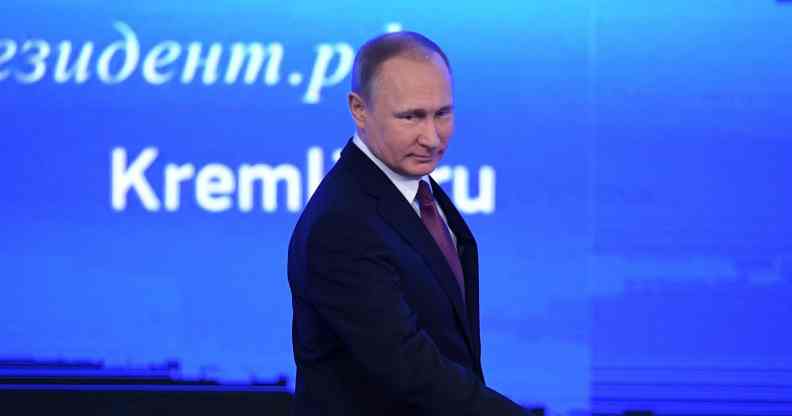MPs warn that UK withdrawal from human rights treaty will be ‘gift’ to Russia

Senior MPs have warned that the UK’s proposed withdrawal from the European Convention on Human Rights would embolden persecution by Russia.
The concerns arose in a report from Parliament’s Foreign Affairs Committee, which cited extreme concern about the persecution of LGBT people in Russia.
The report warns that Theresa May’s proposals to pull the UK out of the human rights convention would “risk sending a signal to Russia that it can freely disregard international human rights norms at home and abroad, and would undermine UK support for the work of human rights groups in Russia”.
The committee, chaired by out Tory MP Crispin Blunt, also flags concerns that the withdrawal plan would also “deprive the UK of a key source of soft power and influence among reformers and human rights activists in Russia”.
It adds: “In order to maintain international standards on human rights, the UK Government should not withdraw from the ECHR and should make it clear that no such step is contemplated.”
The ECHR is not a European Union institution, and so the Brexit process will not lead to automatic withdrawal.
While serving as Home Secretary last year, now-Prime Minister Theresa May set out the case for the UK leaving the European Convention on Human Rights, claiming it had done “nothing” for Brits – despite the court helping to secure many early LGBT rights victories.
May’s proposal was shelved during her leadership bid to quell concerns from other senior Tories, but reports have since suggested ECHR withdrawal will be a key plank in the next Conservative manifesto.
Elsewhere in the report, the committee cited concerns about human rights violations by the Russian government in order to target LGBT people.
MPs cited a Human Rights Watch study that warned: “The Russian authorities have introduced severe restrictions on freedom of association and expression, and political opponents, journalists and NGOs are harassed, threatened, repressed, imprisoned and sometimes killed for their criticisms of state policy.
“The country’s discriminatory legislation on lesbians, gays, bisexuals and transgender (LGBT) people is used to harass LGBT and disrupt
pro-LGBT events and the authorities largely fail to prevent or prosecute homophobic violence.”
The committee added: “Anti-liberal rhetoric has been reflected in Russian law, particularly on LGBT and human rights issues.
“In 2013, for example, the State Duma passed a law imposing heavy fines on individuals and groups accused of “promoting” homosexuality to minors in order to protect the “religious feelings of the faithful”.
“When we visited Russia, we met representatives of several groups that had been branded as ‘foreign agents’, including journalists, LGBT
rights activists, social science researchers and veterans’ rights advocates. They described the huge practical impediments to their work that resulted from their being labelled in this way, including fines and the imposition of major bureaucratic obstacles.”
Article 14 of the ECHR, which affords protection from discrimination, has been used in many legal cases to argue for protection for LGBT people, most notably securing an equal age of consent in the UK.
The ECHR was also vital in securing a settlement in the Republic of Ireland in 2014 on gender recognition. It remains influential across Europe on LGBT rights, with Italy securing civil unions following an ECHR ruling.

